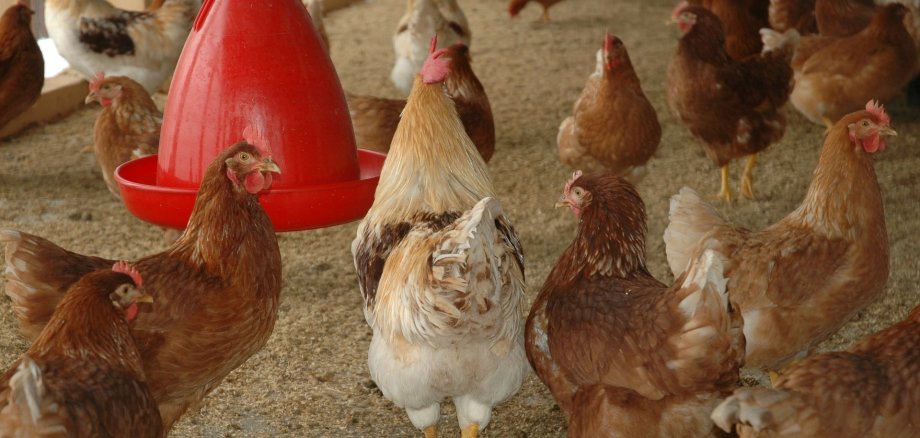Avian flu in the county: safety measures recommended
There is a case of bird flu in Waldeck-Frankenberg. It is the first in five years. The virus was detected in a wild goose found last week at Lake Edersee. In coordination with the Hessian Ministry for the Environment, Climate Protection, Agriculture and Consumer Protection and the Regional Council of Kassel, the district recommends increased safety measures for poultry keepers in Waldeck-Frankenberg.
"The animal is a dead wild goose that was found near Herzhausen and in which the virus type H5N1 was detected," inform District Administrator Jürgen van der Horst and First District Commissioner Karl-Friedrich Frese. "The Friedrich Löffler Institute, the Federal Research Institute for Animal Health, has confirmed the positive case after appropriate investigations." In coordination with the authorities involved, the district has therefore taken appropriate safety measures.
Housing, hygiene, no contact with wild animals
As a precautionary measure, poultry farms in the entire district are recommended to keep their animals in closed sheds for the time being. Alternatively, aviary housing with a closed solid roof and bird-proof nets or grids on the sides is recommended. Poultry keepers should also clean and disinfect their shoes before entering and after leaving the poultry area or use disposable shoe covers to avoid carrying pathogens into the house. Feed and litter should always be stored out of reach of wild birds and poultry should only be fed in places inaccessible to wild birds. Only water to which wild birds have no access should be used for drinking and bathing. Surface water from streams and lakes, but also rainwater, should not be used.
Virus easily transmissible
The H5N1 virus detected in the goose is very easily transmissible. There is a particular risk of introducing the animal disease through wild birds and in connection with bird migration. Healthy animals can become infected through contact with sick animals or their excretions. Sick animals excrete the pathogen with their faeces and with mucus or fluids from their beaks and eyes. In case of direct contact, other animals become infected by inhaling or picking up virus-containing material. Furthermore, transmission can also occur through contaminated commodities such as vehicles, equipment or packaging material.
Protect animals as best as possible
"The discovery at Lake Edersee makes it clear that the local wild bird population is partially infected with the pathogen. It can be assumed that this will not be an isolated case," says Dr Anke Zwolinski from the district's Food Monitoring, Animal Welfare and Veterinary Service. "To protect their animals from infection, we therefore call on all poultry keepers to follow the recommendations and be vigilant." This is the best way to protect your animals.
Report finding sick animals
According to the Robert Koch Institute, there are no known human cases of bird flu in Germany so far. Nevertheless, as with all other dead animals, contact with sick or dead wild birds, especially waterfowl or birds of prey, should be avoided and their discovery reported to the district so that they can be recovered and examined as quickly as possible. Dead animals from your own flock should also be stored in such a way that other animals cannot have contact with the carcasses until they are collected by the rendering service. If several animals of your own herd fall ill or die, this must also be reported to the district. The service can be contacted at 06451 - 743 753.
In addition, in order to prevent the spread of avian influenza, all poultry keepers who have so far neglected to register as such with the district's Food Monitoring, Animal Welfare and Veterinary Service should do so without delay - regardless of how many animals they own. They must also be registered with the Hessische Tierseuchenkasse.
